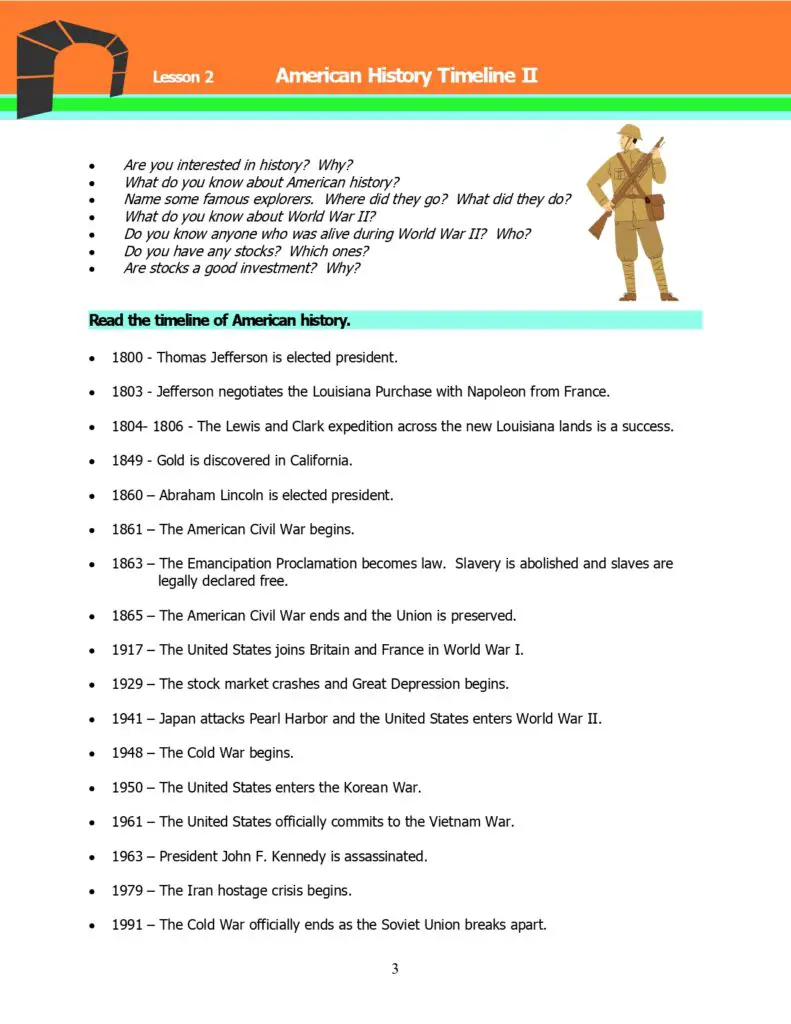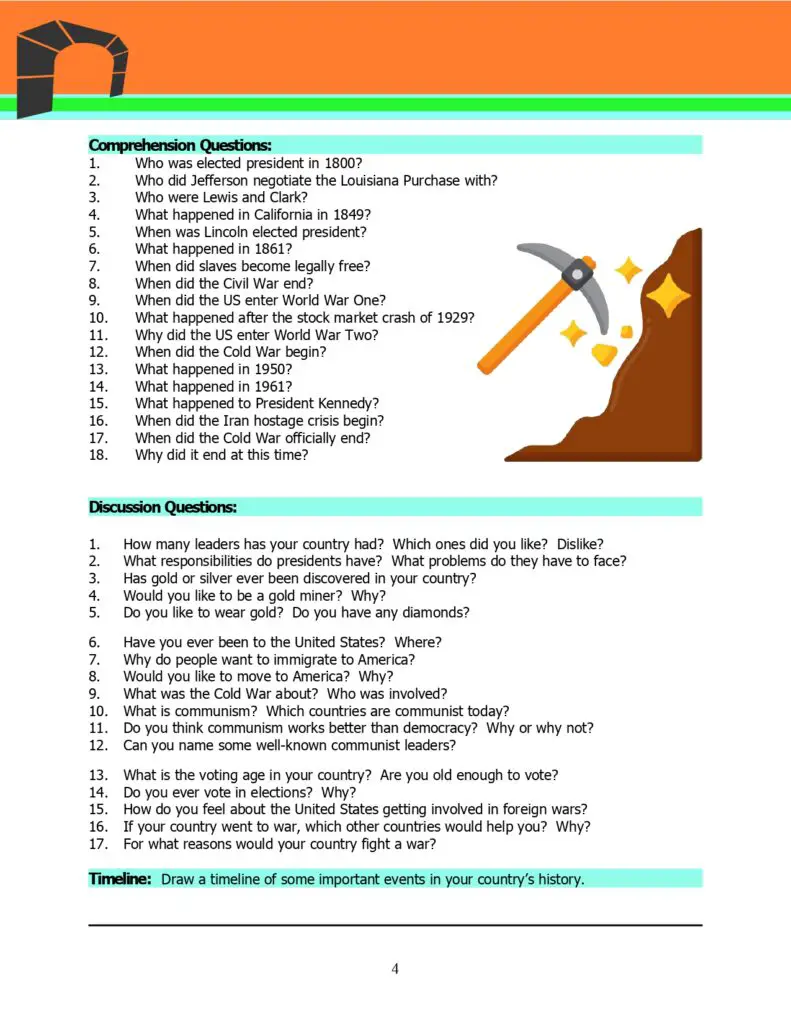This is Lesson 2, “American History Timeline II,” from our collection of advanced adult ESL lessons. The lesson features a detailed timeline of later American history, followed by comprehension questions, discussion questions, and a timeline activity. This content-packed lesson is useful for helping more advanced English learners refine and improve their English fluency. This lesson is available for free download, and you can download many other ESL lessons for adults like this one in our book ESL Pathways: Frontiers.


ADULT ESL LESSONS: American History Timeline II (Text-Only Version)
- Are you interested in history? Why?
- What do you know about American history?
- Name some famous explorers. Where did they go? What did they do?
- What do you know about World War II?
- Do you know anyone who was alive during World War II? Who?
- Do you have any stocks? Which ones?
- Are stocks a good investment? Why?
Read the timeline of American history.
- 1800 – Thomas Jefferson is elected president.
- 1803 – Jefferson negotiates the Louisiana Purchase with Napoleon from France.
- 1804- 1806 – The Lewis and Clark expedition across the new Louisiana lands is a success.
- 1849 – Gold is discovered in California.
- 1860 – Abraham Lincoln is elected president.
- 1861 – The American Civil War begins.
- 1863 – The Emancipation Proclamation becomes law. Slavery is abolished and slaves are legally declared free.
- 1865 – The American Civil War ends and the Union is preserved.
- 1917 – The United States joins Britain and France in World War I.
- 1929 – The stock market crashes and Great Depression begins.
- 1941 – Japan attacks Pearl Harbor and the United States enters World War II.
- 1948 – The Cold War begins.
- 1950 – The United States enters the Korean War.
- 1961 – The United States officially commits to the Vietnam War.
- 1963 – President John F. Kennedy is assassinated.
- 1979 – The Iran hostage crisis begins.
- 1991 – The Cold War officially ends as the Soviet Union breaks apart.
Comprehension Questions:
- Who was elected president in 1800?
- Who did Jefferson negotiate the Louisiana Purchase with?
- Who were Lewis and Clark?
- What happened in California in 1849?
- When was Lincoln elected president?
- What happened in 1861?
- When did slaves become legally free?
- When did the Civil War end?
- When did the US enter World War One?
- What happened after the stock market crash of 1929?
- Why did the US enter World War Two?
- When did the Cold War begin?
- What happened in 1950?
- What happened in 1961?
- What happened to President Kennedy?
- When did the Iran hostage crisis begin?
- When did the Cold War officially end?
- Why did it end at this time?
Discussion Questions:
- How many leaders has your country had? Which ones did you like? Dislike?
- What responsibilities do presidents have? What problems do they have to face?
- Has gold or silver ever been discovered in your country?
- Would you like to be a gold miner? Why?
- Do you like to wear gold? Do you have any diamonds?
- Have you ever been to the United States? Where?
- Why do people want to immigrate to America?
- Would you like to move to America? Why?
- What was the Cold War about? Who was involved?
- What is communism? Which countries are communist today?
- Do you think communism works better than democracy? Why or why not?
- Can you name some well-known communist leaders?
- What is the voting age in your country? Are you old enough to vote?
- Do you ever vote in elections? Why?
- How do you feel about the United States getting involved in foreign wars?
- If your country went to war, which other countries would help you? Why?
- For what reasons would your country fight a war?
Timeline: Draw a timeline of some important events in your country’s history.
